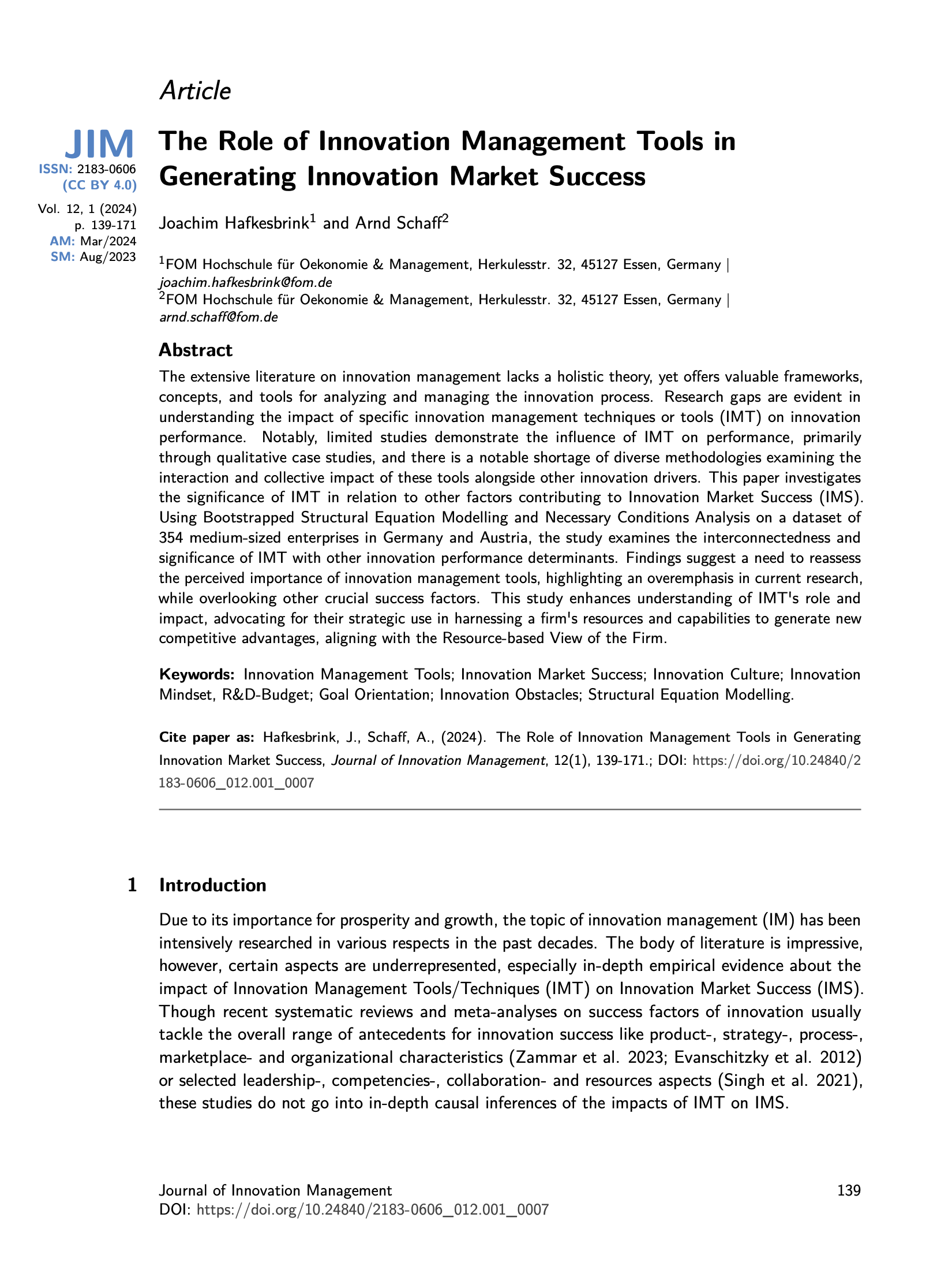The Role of Innovation Management Tools in Generating Innovation Market Success
Main Article Content
Abstract
The extensive literature on innovation management lacks a holistic theory, yet offers valuable frameworks, concepts, and tools for analyzing and managing the innovation process. Research gaps are evident in understanding the impact of specific innovation management techniques or tools (IMT) on innovation performance. Notably, limited studies demonstrate the influence of IMT on performance, primarily through qualitative case studies, and there is a notable shortage of diverse methodologies examining the interaction and collective impact of these tools alongside other innovation drivers. This paper investigates the significance of IMT in relation to other factors contributing to Innovation Market Success (IMS). Using Bootstrapped Structural Equation Modelling and Necessary Conditions Analysis on a dataset of 354 medium-sized enterprises in Germany and Austria, the study examines the interconnectedness and significance of IMT with other innovation performance determinants. Findings suggest a need to reassess the perceived importance of innovation management tools, highlighting an overemphasis in current research, while overlooking other crucial success factors. This study enhances understanding of IMT's role and impact, advocating for their strategic use in harnessing a firm's resources and capabilities to generate new competitive advantages, aligning with the Resource-based View of the Firm.
Article Details
Authors who publish with this journal agree to the following terms:
- Authors retain copyright and grant the journal right of first publication with the work simultaneously licensed under a Creative Commons Attribution License that allows others to share the work with an acknowledgement of the work's authorship and initial publication in this journal.
- Authors are able to enter into separate, additional contractual arrangements for the non-exclusive distribution of the journal's published version of the work (e.g., post it to an institutional repository or publish it in a book), with an acknowledgement of its initial publication in this journal.
- Authors are permitted and encouraged to post their work online (e.g., in institutional repositories or on their website) prior to and during the submission process, as it can lead to productive exchanges, as well as earlier and greater citation of published work (See The Effect of Open Access).

